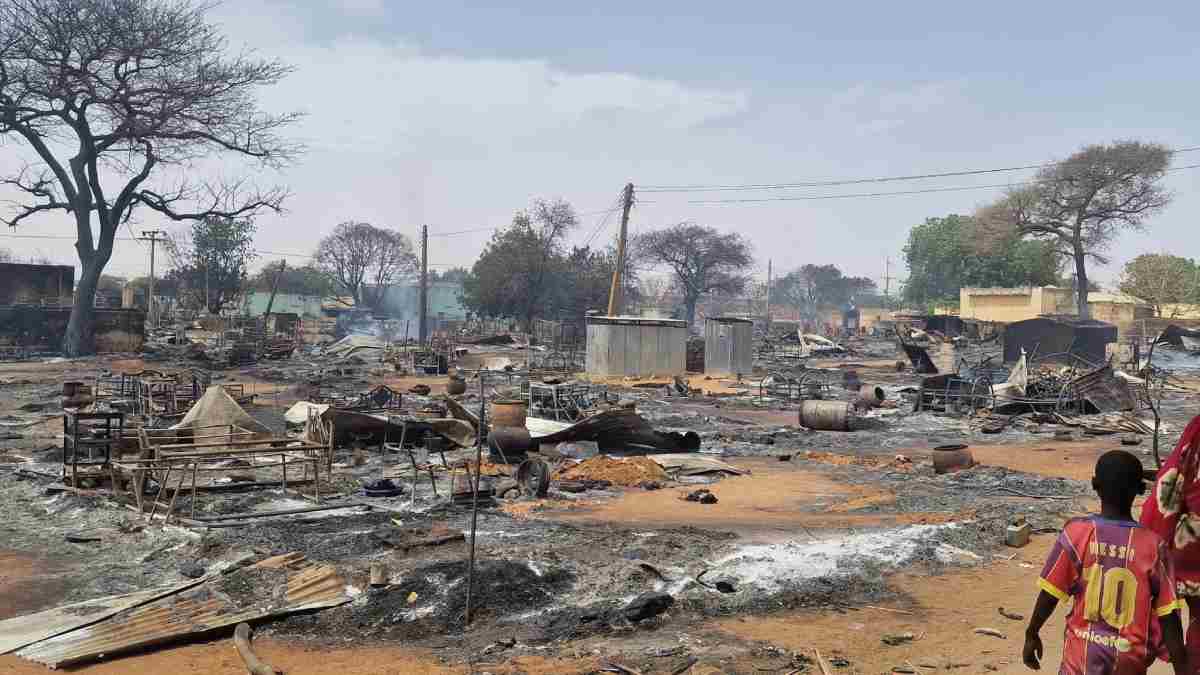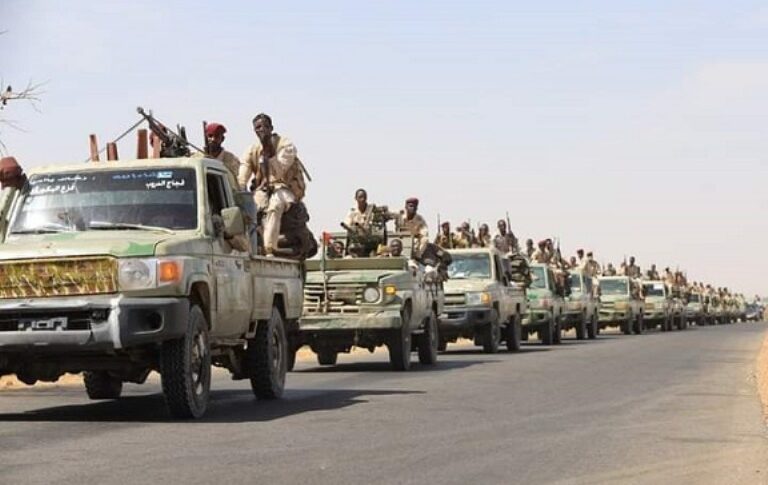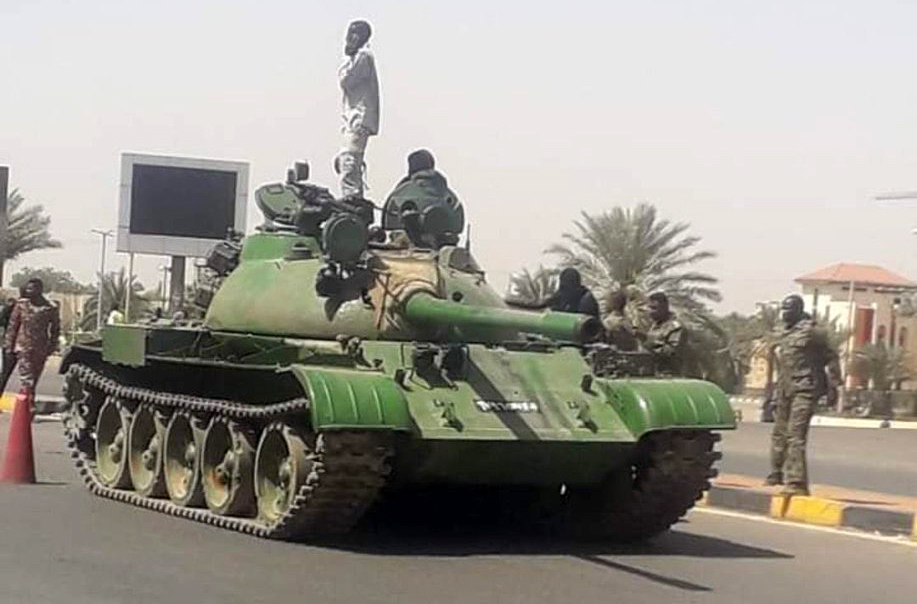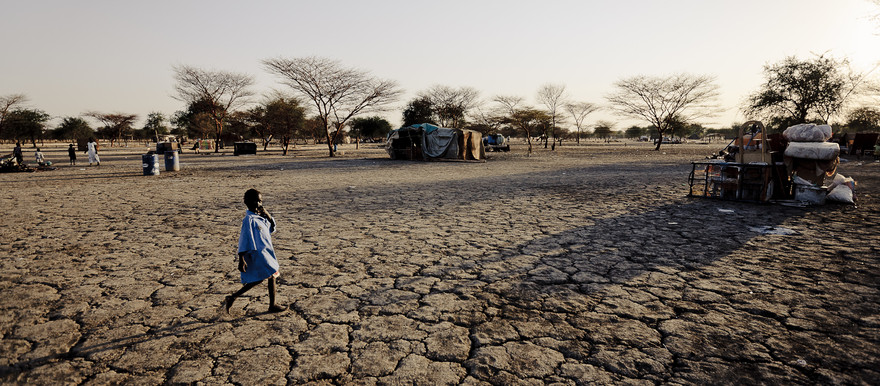
Darfur bears brunt of Sudan conflict
Coverage of Sudan’s new internal conflict, now entering its second month, has focused on the battle for Khartoum, the nation’s capital. But some of the worst fighting has taken place in El Geneina, capital of West Darfur state. On top of combat between the army and paramilitary Rapid Support Forces (RSF), clashes have broken out in the town between RSF-aligned Arab militias and members of the Masalit ethnic group. By the count of local medical groups, the total death toll in El Geneina now exceeds 2,000, while more than 150,000 people from the town and surrounding areas have been displaced. Many have fled across the border to neighboring Chad. (Photo: Remains of an IDP camp in El Geneina, via Radio Dabanga)










